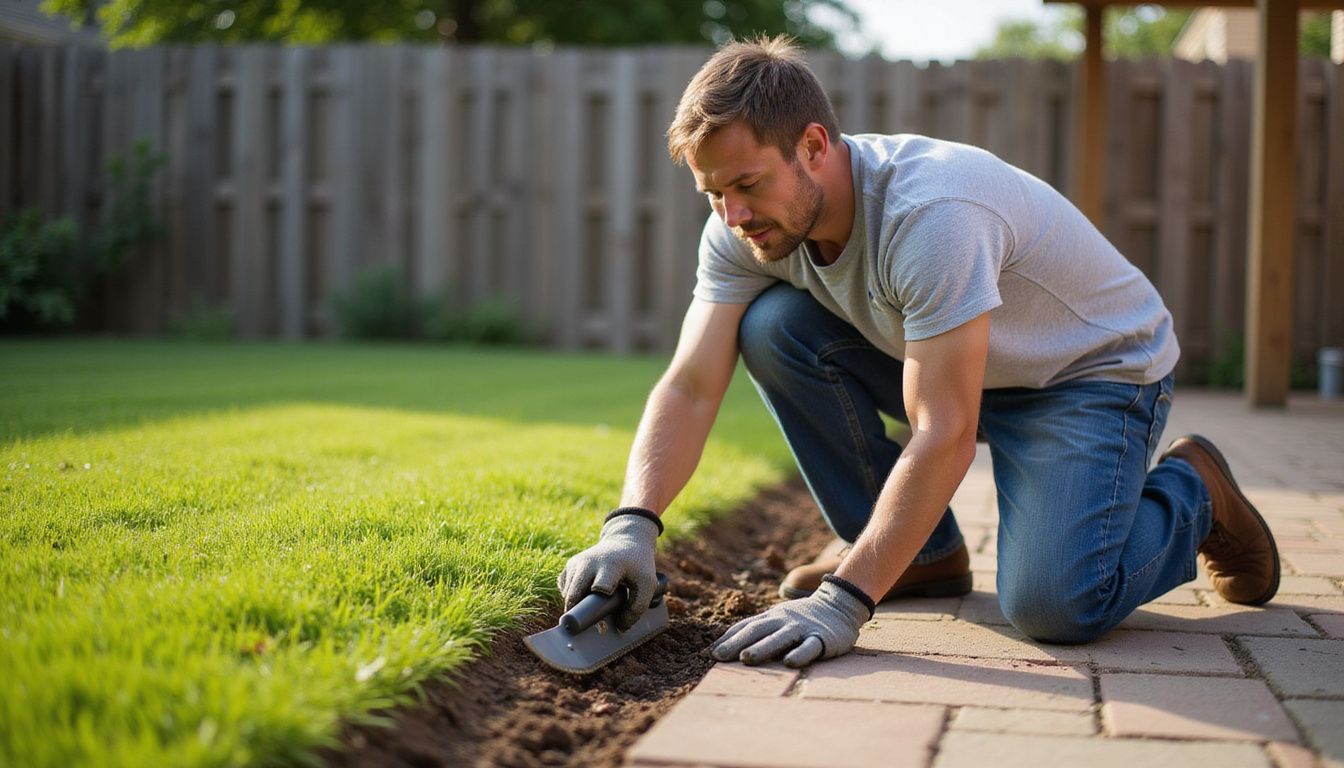Choosing the right materials for building walls can be puzzling. Precast concrete walls are celebrated for their energy efficiency and sturdy design. This blog post will explore how these walls might be the robust yet stylish solution you’ve been searching for your construction needs.
Key Takeaways
To decide if precast concrete is right for building your wall project, consider aspects like climate requirements, budget constraints, and aesthetic preferences by consulting with construction professionals.
Precast concrete walls are known for their strength, energy efficiency, and low maintenance. They resist impact, corrosion, weathering, and abrasion very well.
These walls come with various design options and can be made to imitate other materials like stone or wood. Insulation can also be added for improved energy savings.
Despite a higher upfront cost, precast concrete walls can lead to long – term savings due to reduced labor costs from faster installation times and lower ongoing maintenance expenses.
Potential disadvantages of using precast concrete include limited customization possibilities once panels are made and the need for skilled labor during the installation process.
Understanding Precast Concrete Walls
Precast concrete walls are factory-made panels that builders use to create the exterior and interior walls of buildings. These panels consist of high-density concrete reinforced with materials like steel, making them strong against impacts and extreme weather conditions.
Their manufacturing process involves casting concrete in a reusable mold which is then cured in a controlled environment before being transported to the construction site. This method ensures uniform quality and durability for each panel produced.
Made for both aesthetic appeal and functional superiority, precast concrete wall panels come insulated or non-insulated to suit different building requirements. Insulated versions have a layer of insulation between two layers of concrete, greatly increasing energy efficiency in buildings.
As virtually maintenance-free options, these walls resist corrosion, weathering, abrasion, and even acid attacks better than other materials on the market. They swiftly become integral parts of structures ranging from houses to commercial projects due to their formidable strength, soundproofing capabilities, and longevity benefits.
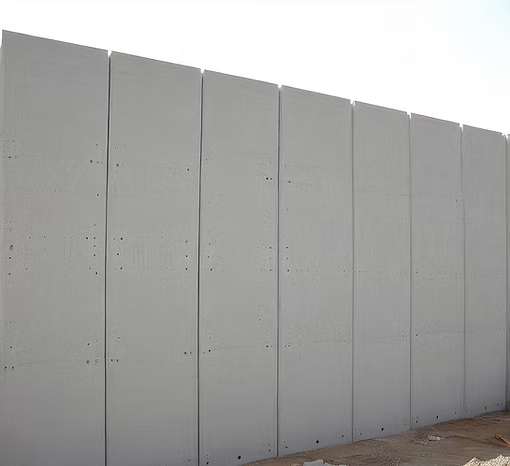
Advantages of Precast Concrete Walls
Precast concrete walls offer superior strength and durability, as well as design flexibility. They also provide speedy installation, sound isolation, and various insulation options.
Superior strength and durability
Precast concrete walls exhibit superior strength and durability, making them highly resistant to impact, corrosion, weathering, and abrasion. These qualities result in virtually maintenance-free walls that provide long-term structural integrity and security for buildings.
The high-density precast concrete offers enhanced resistance to acid attack and surface voids, reducing the accumulation of dust and ensuring a durable finish. With their exceptional impact resistance and corrosion resistance properties, precast concrete panels are an ideal choice for wall construction projects requiring longevity and reliability.
The reinforced nature of precast concrete panels ensures a robust framework that stands up well against wear and tear. Their ability to withstand the elements while maintaining structural integrity makes them a popular option in the construction industry.
Design flexibility
Precast concrete walls offer impressive design flexibility, allowing for a wide range of architectural styles and finishes. They can be customized to fit specific project requirements, such as unique shapes or patterns, and accommodate various building codes.
With precast concrete panels available in different sizes and textures, they provide architects with ample opportunities to create visually appealing structures while meeting structural demands.
This versatility allows for the incorporation of decorative elements during casting, giving buildings an aesthetic edge as well.
The use of advanced molding techniques enables precast concrete walls to mimic the appearance of natural materials like wood or stone, offering an extensive palette for architectural design.
Speedy installation
Speedy installation is a key advantage of precast concrete walls. The panels are prefabricated off-site, allowing for quick and efficient on-site assembly. This can significantly reduce construction time and labor costs, providing a timely solution for building projects.
With the ability to install precast concrete walls swiftly, construction schedules can be adhered to more effectively.
When considering the advantages of speedy installation, it’s important to also assess the other benefits that precast concrete walls offer. Next, let’s explore how these walls provide sound isolation in buildings.
Sound isolation
Precast concrete walls provide excellent sound isolation, reducing noise transmission from outside the building. The dense nature of precast concrete effectively dampens sound waves, creating a quieter indoor environment.
This feature is especially beneficial for residential and commercial buildings located in noisy urban areas or near highways, ensuring a peaceful and comfortable atmosphere inside the structure.
Additionally, precast concrete walls contribute to noise reduction within the building itself by minimizing sound transfer between rooms. The superior density and solid construction of precast concrete panels effectively contain and absorb internal sounds, enhancing privacy and comfort within the spaces they enclose.
Insulation options
Precast concrete walls offer versatile insulation options, with the availability of both insulated and non-insulated wall panels. The insulated wall panels provide high thermal efficiency through their three layers, making them very energy-efficient building materials.
This feature is crucial for maintaining temperature control within buildings and can lead to long-term cost savings due to reduced energy consumption. Non-insulated precast concrete walls are also suitable for construction projects where insulation may not be a primary concern, offering different benefits such as durability and low maintenance requirements.
The insulation options available in precast concrete walls contribute to their weathering resistance and overall sustainability as building materials. With superior thermal efficiency and durability, these walls meet the demand for sustainable construction techniques while providing practical solutions for various structural needs.
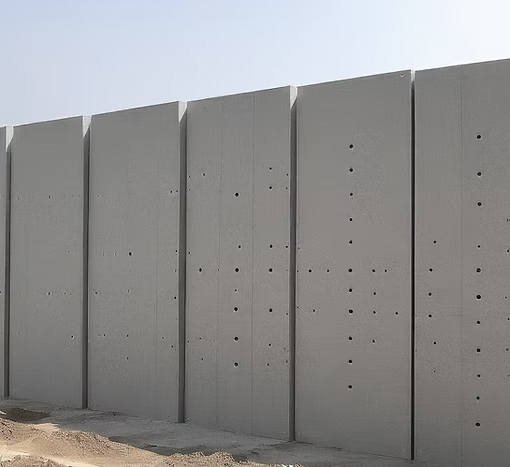
Disadvantages of Precast Concrete Walls
Precast concrete walls come with their own set of disadvantages, including higher initial cost, limited customization options, transportation and installation challenges, potential for cracking or warping, and the need for skilled labor during installation.
It’s important to consider these drawbacks when evaluating precast concrete as an option for your project.
Higher initial cost
Precast concrete walls may have a higher initial cost compared to other wall materials, but the long-term benefits far outweigh this initial investment. The enhanced durability, energy efficiency, and low maintenance of precast concrete walls contribute to significant cost savings over time.
Additionally, the speed of installation reduces labor costs and minimizes construction time, making it a sustainable and economically viable option for wall construction.
The superior strength and insulation options of precast concrete walls ensure that they are a worthwhile investment for any construction project. With their resistance to impact, corrosion, weathering, and abrasion, precast concrete walls offer unmatched longevity without constant upkeep or repair.
Limited customization
Precast concrete walls offer limited customization options compared to other wall materials. Design alterations may be challenging due to the specific nature of precast panels. The design and color choices might be restricted, requiring careful planning to achieve the desired aesthetic appeal in construction projects.
However, despite limited customization, precast concrete walls provide numerous benefits such as superior strength, durability, and energy efficiency.
While precast concrete does not offer extensive customization options, it compensates with its high durability and low maintenance requirements. This makes it a popular choice for many construction projects seeking long-term cost savings and sustainable building materials.
Transportation and installation challenges
Limited customization may pose some transportation and installation challenges due to the need for careful handling and precise alignment during the delivery and setup of precast concrete wall panels.
The weight and size of these panels can require specialized equipment for transportation, along with skilled labor for safe unloading, positioning, and securing at the construction site.
Additionally, ensuring proper bracing and support during installation to prevent cracking or warping is crucial. Attention to detail in logistics and coordination is essential to overcome these challenges effectively.
Potential for cracking or warping
Precast concrete walls have the potential for cracking or warping, particularly when not handled or installed correctly. This can occur due to factors such as rapid temperature changes and improper curing.
However, reinforced concrete and proper installation techniques help minimize these risks, ensuring panel durability over time. Skilled labor is essential to avoid issues like cracking or warping during transportation and installation, safeguarding the integrity of the structure.
It’s crucial to address any potential risk of cracking or warping by working with experienced professionals who understand how to mitigate these challenges effectively. The superior strength and durability of precast concrete walls make them a favorable option despite these concerns.
Requires skilled labor for installation
Skilled labor is necessary to ensure proper installation of precast concrete walls, maintaining quality and structural integrity. The expertise required involves precise handling and assembly to prevent any potential issues during the installation process.
This ensures that the precast concrete walls are correctly positioned, aligned, and securely anchored according to engineering specifications without compromising their strength or durability.
Professional installation also guarantees that insulation options are appropriately integrated within the wall panels, optimizing the energy efficiency benefits offered by precast concrete walls.
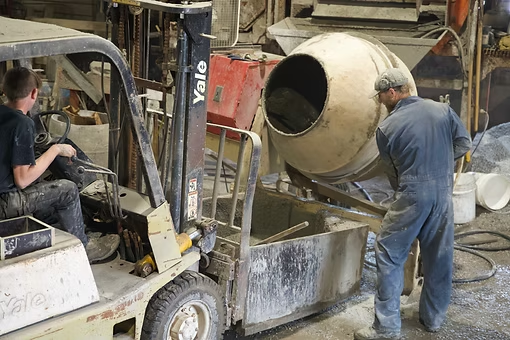
Conclusion: Is Precast Concrete Good for Walls?
Overall, precast concrete is a suitable option for wall construction, offering numerous benefits and advantages such as superior strength, durability, and design flexibility. However, careful consideration is necessary for each specific project and it’s essential to consult with professionals for the best solution.
Precast concrete is a suitable option for wall construction
Precast concrete is an excellent choice for wall construction due to its durability, energy efficiency, and low maintenance requirements. Its resistance to impact, corrosion, weathering, and abrasion makes it virtually maintenance-free.
Additionally, precast insulated concrete walls offer high thermal efficiency with three layers. These qualities make precast concrete walls a popular option for houses and other construction projects seeking cost-efficiency and long-term savings.
Furthermore, the superior strength and sound isolation properties of precast concrete allow for increased security while providing structural benefits. The material’s resistance against acid attack, corrosion, and impact also reduces surface voids and accumulation of dust.
Offers numerous benefits and advantages
With precast concrete, maintenance is virtually unnecessary due to its resistance to impact, corrosion, weathering, and abrasion. The three layers of high thermal efficiency contribute to energy savings and sustainable construction.
These walls provide security, soundproofing, structural integrity and aesthetic appeal with cost-efficiency benefits.
In addition, precast concrete walls are durable yet cost-effective compared to other materials. They have high density that makes them resistant against acid attack and dust accumulation.
Careful consideration is necessary for each specific project
When considering precast concrete for walls, it is essential to weigh the specific requirements of each project. Factors such as climate, budget, design goals, and timeline should be carefully evaluated to determine if precast concrete is the best fit.
Consult with professionals to assess how precast concrete can meet the unique needs of a particular construction project. By doing so, you ensure that the advantages of precast concrete walls align with the specific demands of your building endeavor.
Careful assessment is crucial when determining whether precast concrete walls are suitable for a project. Each aspect – from insulation options to transportation challenges – must be analyzed thoroughly in relation to the individual requirements of the construction undertaking at hand.
Consult with professionals for the best solution
Consult with experienced professionals to determine the most suitable precast concrete wall solution for your specific construction project.
Engaging with experts will ensure that you receive tailored advice based on your unique requirements, leading to optimal results in terms of durability, aesthetics, and cost-efficiency.
FAQs
1. What makes precast concrete a good choice for walls?
Precast concrete is great for walls because it’s strong and doesn’t need much maintenance, so it stays in good shape without extra work.
2. How does precast concrete hold up against wear and tear?
Precast concrete is really tough against scratches and daily wear, which means it keeps looking new even after years of use.
3. Do I have to spend a lot on keeping my precast concrete walls looking good?
Nope! Precast concrete walls are mostly maintenance-free, so you save time and money since they hardly need any fixing or cleaning.
4. Can precast concrete be used for both indoor and outdoor walls?
Yes, you can use precast concrete for both inside and outside walls because it’s durable in any weather and looks sleek anywhere.
Recent Posts
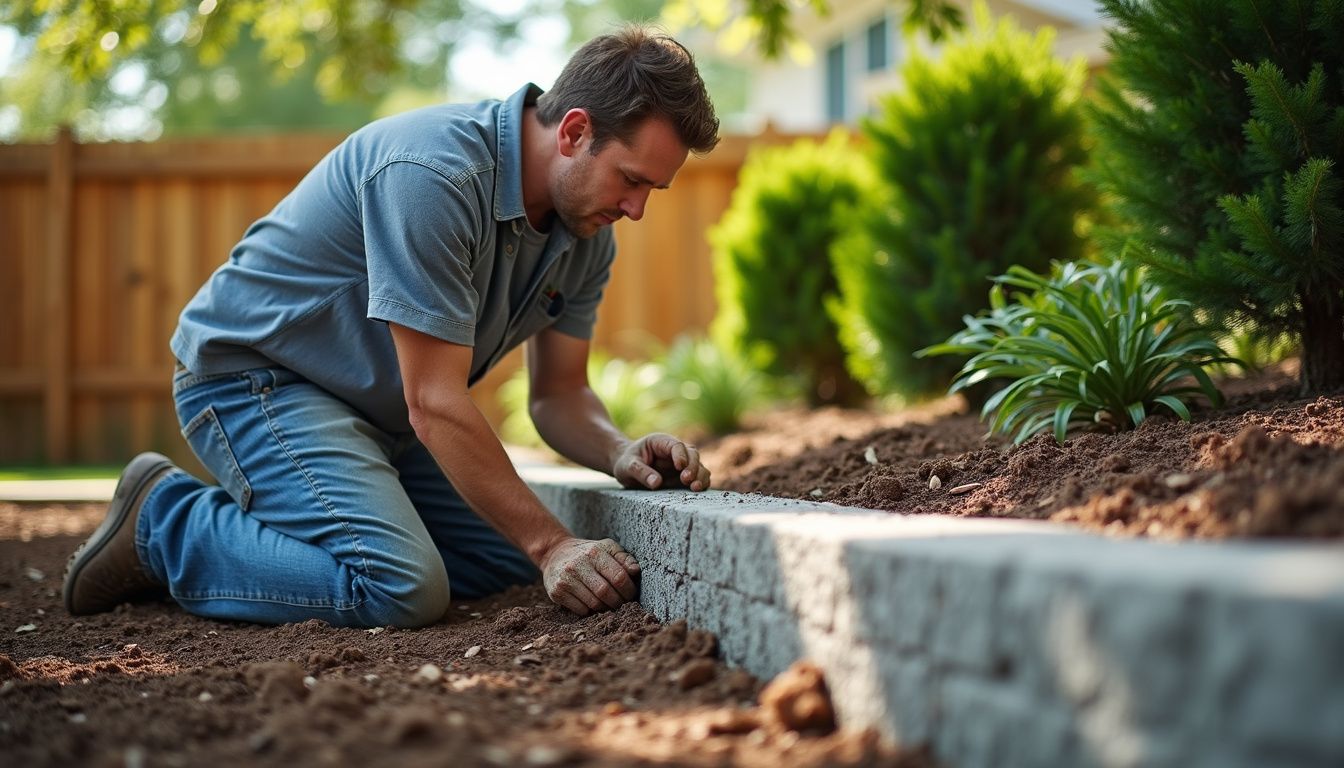
Why Landscaping Pros Prefer Precast Concrete Over Poured-in-Place
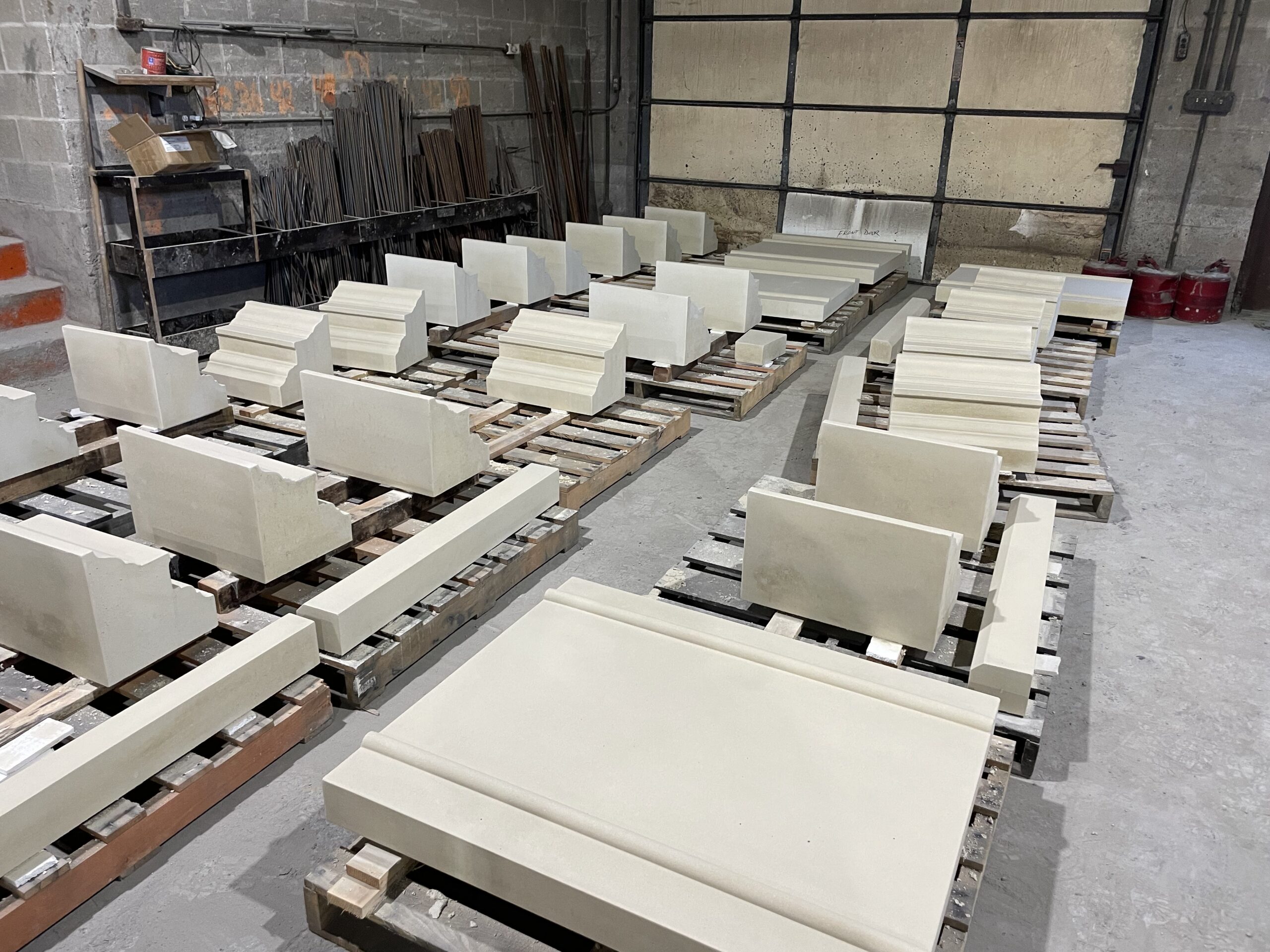
Why & How is Precast Concrete Prestressed?
